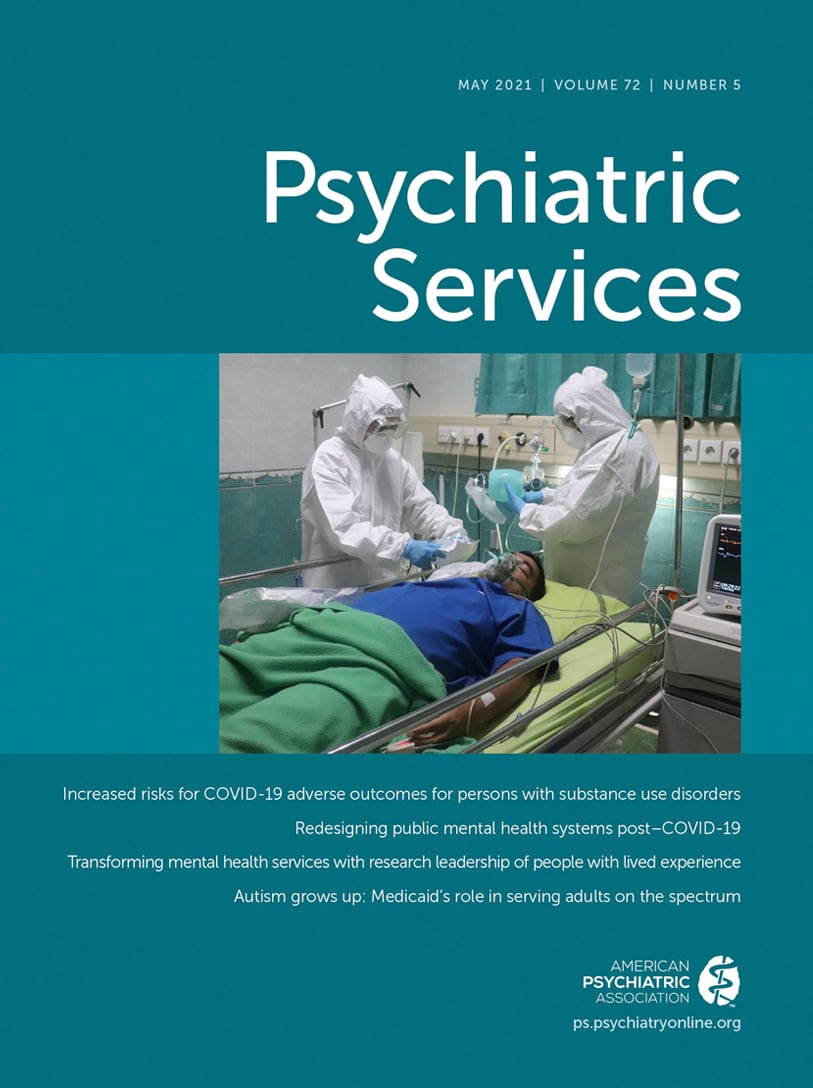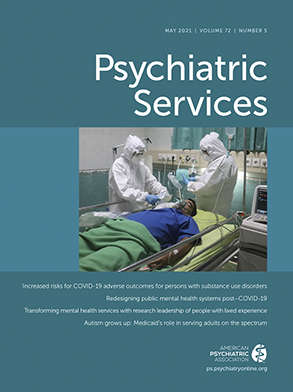In their article, Fettes et al. (
1) report that Black parents’ depressive symptoms, regardless of severity, did not improve over the course of SafeCare Program services. We take issue with the study’s failure to address racism, position that important frameworks can guide mental health research in a more antiracist direction.
The study highlights “race and ethnic differences” in depressive profiles, instead of centering the racism shaping the inequities—“racism” appears only once. While noting that “elevated depression rates among individuals from minority groups are largely associated with . . . inadequate access to high-quality services,” the study did not consider how racist policies and practices (e.g., policing and child welfare involvement) differentially affect the depressive profiles of non-White communities. The study notes that because “Black families are disproportionately represented in public sector service settings, in particular child welfare services, there is a specific need to address systemic, service, and discriminatory mechanisms that contribute to poorer outcomes.” However, the study also should have noted that Black parents may experience child welfare involvement as a fundamentally discriminatory experience of being policed. The authors considered “previous studies that showed lower depression for Black individuals in community samples” and should also consider the possibility that child welfare involvement may be the root cause of the higher depression among Black parents in their study and may explain why depressive symptoms did not improve.
The authors assume SafeCare is a “supportive,” “empowering,” and beneficial intervention and suggest that increasing the “racial-ethnic matching of therapists and clients” could mitigate Black parents’ heightened depressive profiles. They also recommend adding more interventions (i.e., mental health services) to treat the depression (of Black parents in particular), with the goal of improving child welfare service involvement. Regrettably, these recommendations do not consider non-White communities’ histories of mistreatment and exploitation by these structures (e.g., health care and child welfare) and the risk for trauma related to additional involvement. Material interventions addressing the upstream causes of parental neglect (e.g., housing, cash assistance) may be more definitive interventions, eliminating the need for child welfare services and depression treatment altogether. Such interventions might be especially pertinent to parents with the highest baseline depressive symptoms “struggling to maintain service participation—even compulsory services” and the “40% of parents [who] did not remain in home visitation services beyond a few weeks.” We suggest that the potential harm caused by child welfare involvement is unexamined, and the risk for imposing additional forms of structural violence (through mental health care) remains without interrogation.
We take issue, being inspired by recent scholarship advocating for more just research, clinical, and publishing practices. Boyd et al. recently published “On Racism: A New Standard for Publishing on Racial Health Inequities” (
Health Affairs Blog;
https://www.healthaffairs.org/do/10.1377/hblog20200630.939347/full). The authors recommend that researchers explicitly name racism’s role as a critical driver of health inequities and solicit patient or participant input to ensure that research reflects their experiences and serves their priorities. They ask journals to reject articles that fail to rigorously examine racism while ensuring that editorial staff are well versed in critical race theory (CRT). Dorothy Roberts’s scholarship further informs our contentions. She argues that the child welfare system, an integral part of the U.S. carceral regimen, is more accurately named the “family regulation system.” She recommends abolishing and supplanting it with measures that care for, rather than punish and harm, children and families by addressing the upstream causes of the neglect driving child welfare involvement.
CRT, increasingly cited in biomedical scholarship, emphasizes the presence of racism and White supremacy in all major American institutions. It encourages individuals to consider how intersecting axes of privilege and oppression (e.g., racism, sexism, heterosexism, classism) influence the harm one perpetuates or experiences. Reflecting on positionality through this framework compels researchers to interrogate how their racial and other privileged identities bias their research methodologies and interpretations. Both CRT and abolition emphasize decentering Whiteness and recentering the experiences of individuals most proximal to the oppression in order to imagine transformative solutions that dismantle racism and the carceral state. These frameworks lead us to reconfigure Fettes and colleagues’ findings by suggesting that it was the nature of the intervention causing the depressive symptoms, not the depressive symptoms interfering with the intervention.

